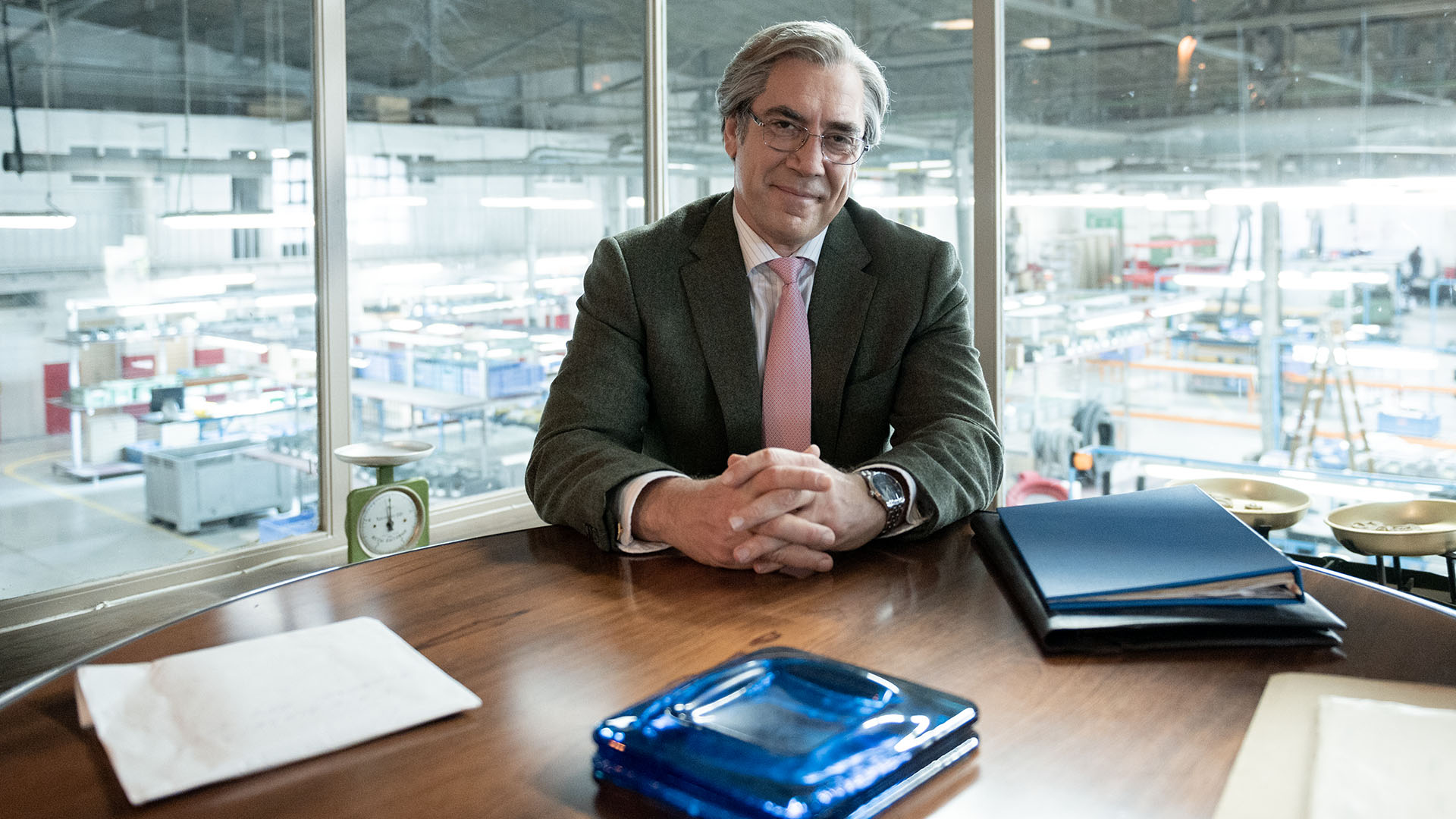At his charismatic best, The Good Boss is the latest in Bardem’s catalogue of bad guys

Javier Bardem leads this corporate comedy as a business owner whose smiles and caring façade mask a capitalist core. He’s so effective, you almost forget who you should be rooting for, writes Rachel Ashby.
The Good Boss, the latest feature from Spanish writer-director Fernando León de Aranoa, is a suave, if not-so-subtle, satire on capitalism that takes its story cues from classic tragicomedy. Javier Bardem stars as the titular boss, Julio Blanco, a magnanimous and manipulative businessman oozing with corporate snake oil. Set at an industrial scales manufacturer, where Blanco is the boss, the film paints a bleakly funny picture of corporate deviousness.
The film opens with Blanco delivering a rallying speech to the ‘big family’ of Blanco Scales, imploring them to be at their best while they anticipate a visit from a judging committee for a regional business excellence award. Smiles and collegiality abound, but his speech is interrupted by the less convivial shouts of a man who was recently fired and is trying to regain his job.
All is not as harmonious as it first appears at Blanco Scales. The recently fired José (Óscar De La Fuente) decides to take up a protest in the public land outside the factory- certainly not a good look for Blanco’s award prospects. José is not the only fly in the ointment. Factory foreman Miralles (Manolo Solo) is having a relationship crisis that’s affecting his work, and a loyal technician Fortuna (Celso Bugallo) needs the boss’ help in sorting out his wayward teenage son.
Blanco is the type of boss who takes on his employees’ problems as his own, but not without an eye for how it can serve him favourably in the future. He sets about righting the imbalances in his workplace through various means; but his meddling, and ill-advised fling with new intern Liliana (Almudena Amor), ultimately tip the scales further out of favour leading to spiralling consequences.
Some critics have argued that, while the film is charming and witty, it’s a fairly standard moralisation on greed and power. Personally, I interpreted this more as an homage to Shakespearean tragedy, lending the story a sense of magnetic doom. Certainly, the tight cast and elegant scripting justify the classic story beats.

As Blanco, Bardem performs the role of a cunning ruler constantly seeking to strengthen his power. As his grip on control loosens, his desperation to regain the upper hand leads him to increasingly extreme actions. It is Bardem at his charismatic best: he oscillates deftly between the humour and gravitas that the role requires of him, more than justifying his win for Best Actor at the 2022 Goya Awards in Spain.
Notable also is the film’s taut and playful score from Zeltia Montes (another winner at the 2022 Goya Awards for this work). Pizzicato strings soundtrack rising tensions like a clock—or maybe a bomb. The apex of the plot plays out against ‘Dance of the Knights,’ Sergei Profokiev’s instantly recognisable work from Romeo and Juliet, furthering the farcical theatricality of the drama.
There’s much to enjoy about this slick satire, not least the way the minor characters reveal their own banal evils and aspirations—but it’s Bardem’s performance that is the linchpin of the piece. Blanco is the latest in Bardem’s catalogue of bad guys so convincing, you almost forget who you should be rooting for.




















